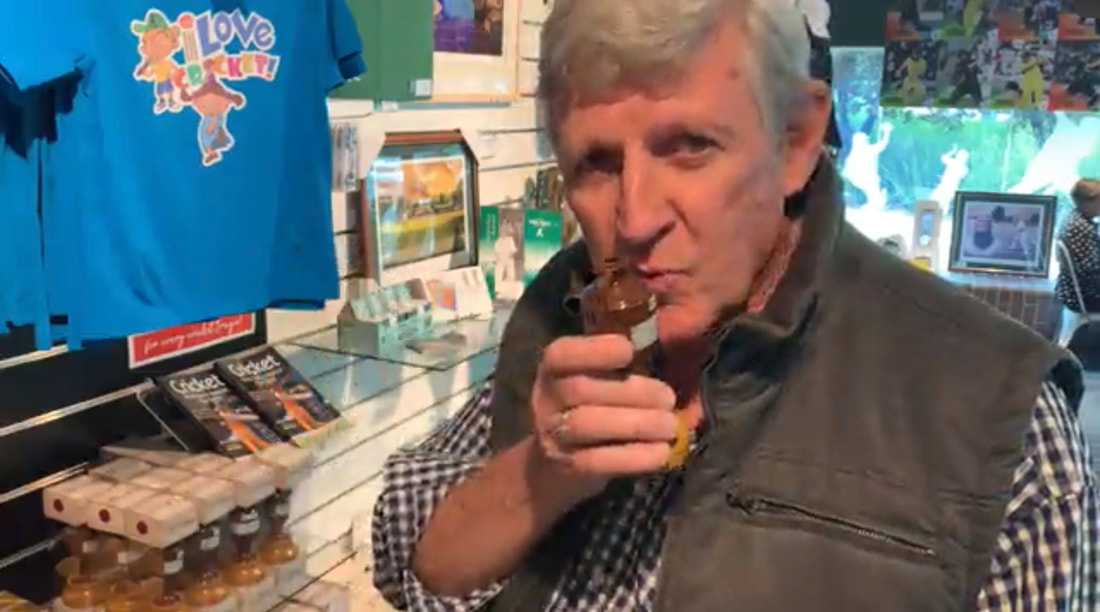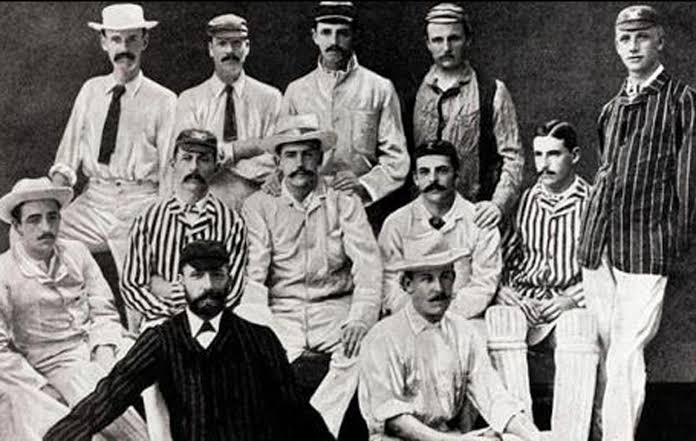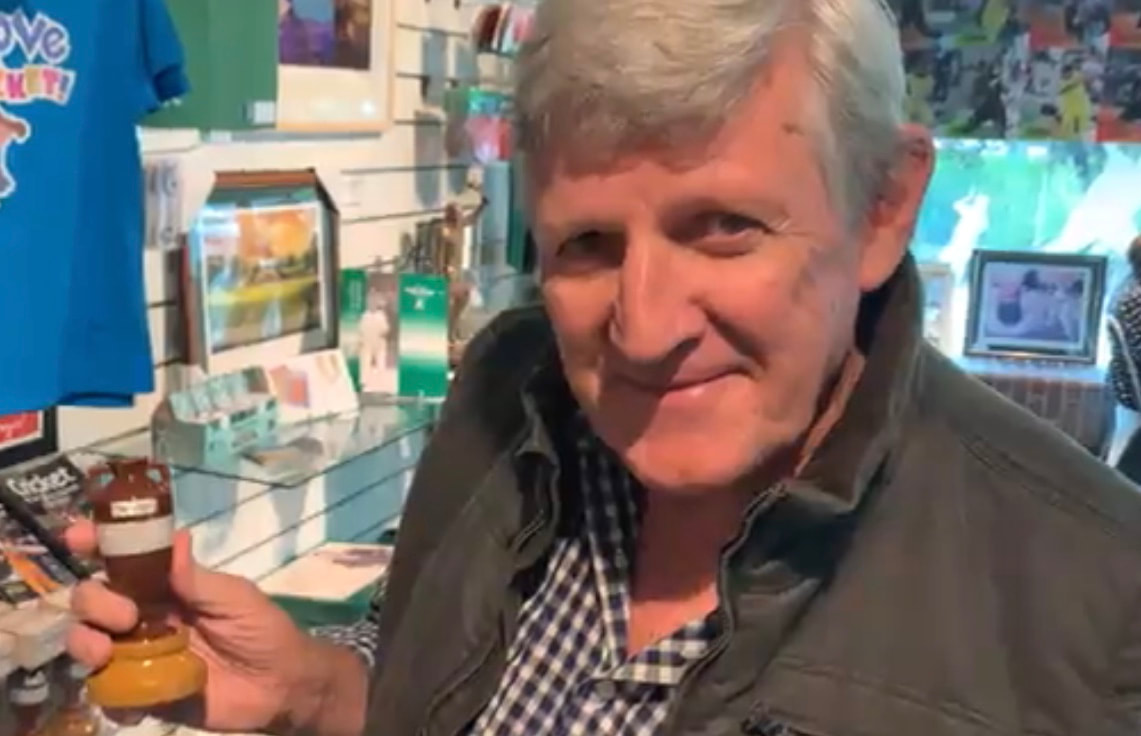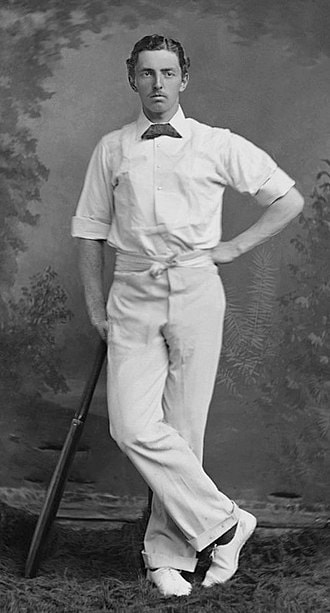|
The Ashes Test series have generated endless dramas since the tiny urn was first presented to the English cricket team in 1883 in Victoria. If you examine the fine print on the trophy, there’s a name there that’s a clue to a remarkable story. When you follow the thread, it takes you on a journey around the world and all the way back to Australia. It began with one man making a bold decision about priorities in life. His name was Charles Studd. READ MORE and WATCH to learn more of this man's amazing story and the way his legacy has continued. THE ASHES - SOME UNKNOWN YARNS I was astonished to read that in the late 1800’s, England’s touring cricket team fielded an 11 in outback Bourke against 22 bush players. If I remember rightly, the Poms won. The fabled Ashes urn is of the world’s most valuable sports trophies – $80,000 on the last estimate. But the idea of ‘the Ashes’ began as something of a joke. In 1882 Australia defeated England at Kennington Oval, London. The Poms were upset about losing to the colonials and a mock obituary notice appeared in the Sporting Times which read: "In Affectionate Remembrance of English Cricket which died at the Oval on 29th August, 1882. Deeply lamented by a large circle of sorrowing friends and acquaintances. R.I.P. N.B.—The body will be cremated and the ashes taken to Australia." Australians kept the joke alive. The story goes that on Christmas Eve 1882, the urn was presented by Lady Clarke to Ivo Bligh the English captain as a jest after a friendly match between his team and a combination of staff and guests on their rural estate outside Melbourne. The tiny terracotta perfume bottle contained ashes of a burned cricket bail. It was presented again at Easter 1883 after England won the series and stuck on the outside was a rough bit of poetry cut out of a Melbourne paper. When Ivo goes back with the urn, the urn; Studds, Steele, Read and Tylecoter return, return; The welkin will ring loud, The great crowd will feel proud, Seeing Barlow and Bates with the urn, the urn; And the rest coming home with the urn. England all-rounder Charles Studd played in both those games. He and his brother George have their names on the urn. They were active men of faith and soon after returning home, Charles joined six other leading athletes from Cambridge University on a circuit urging young people to leave the security of their homeland to serve as missionaries across the world. Charles’ explanation was, "I know that cricket would not last, and honour would not last, and nothing in this world would last, but it was worthwhile living for the world to come." His decision caused a sensation in the press and ‘The Cambridge Seven’ as the athletes were known, launched the Student Volunteer Movement. Thousands responded, spreading around the world in one of the most spontaneous young people’s movements in modern history. Some dedicated themselves to the South Pacific and the ‘Muscular Christianity’ Charles Studd championed touched the life of a young John Flynn, inspiring him to bring airborne medical services to the people of the outback of Australia. Somewhere in my early teenage years, I pulled his biography off the shelf at home in Sydney. I was already a cricket tragic and this story of a top cricketer giving his career away grabbed my attention. Why would you do that? Boys need heroes and C. T. Studd became one of mine. He’s been one of the strong voices in my life ever since. Charles himself spent over 40 years in China, India and Africa. He was an inspirational leader with a radical call and drove himself hard. His demanding lifestyle took a toll on his health, his family and his fellow workers and yet the organisation he founded presently has 1500 men and women spread around the globe. Among them, I have an Australian friend who went to Spain over 30 years ago where he launched a successful drug rehabilitation program called Betel in Barcelona. He has now brought it back to help people in Melbourne, not far from where the Ashes were first presented. Currently Betel exists in 25 countries and more than 100 cities worldwide, having helped more than 200,000 people. So, you’d have to say Charles Studd’s legacy has far outgrown his cricket career. Whenever I see the Ashes urn there’s another poem I think of. It’s one which Charles Studd wrote himself, and it captures his spirit. "Only one life, t’will soon be past, Only what’s done for Christ will last."
2 Comments
Geoffrey Bullock
1/16/2022 08:33:07 am
An inspired story well-told! Thanks, Paul!
Reply
Kevin Murray
1/16/2022 10:01:46 am
Great story and interconnection Paul.
Reply
Leave a Reply. |
AuthorJoin The Outback Historian, Paul Roe, on an unforgettable journey into Australia's Past as he follows the footprints of the Master Storyteller and uncovers unknown treasures of the nation. Archives
October 2023
Categories
All
|
|
Sponsored by
|
Privacy Policy
|
|
Copyright 2020 by The Outback Historian
|
Site powered by ABRACADABRA Learning
|





 RSS Feed
RSS Feed

